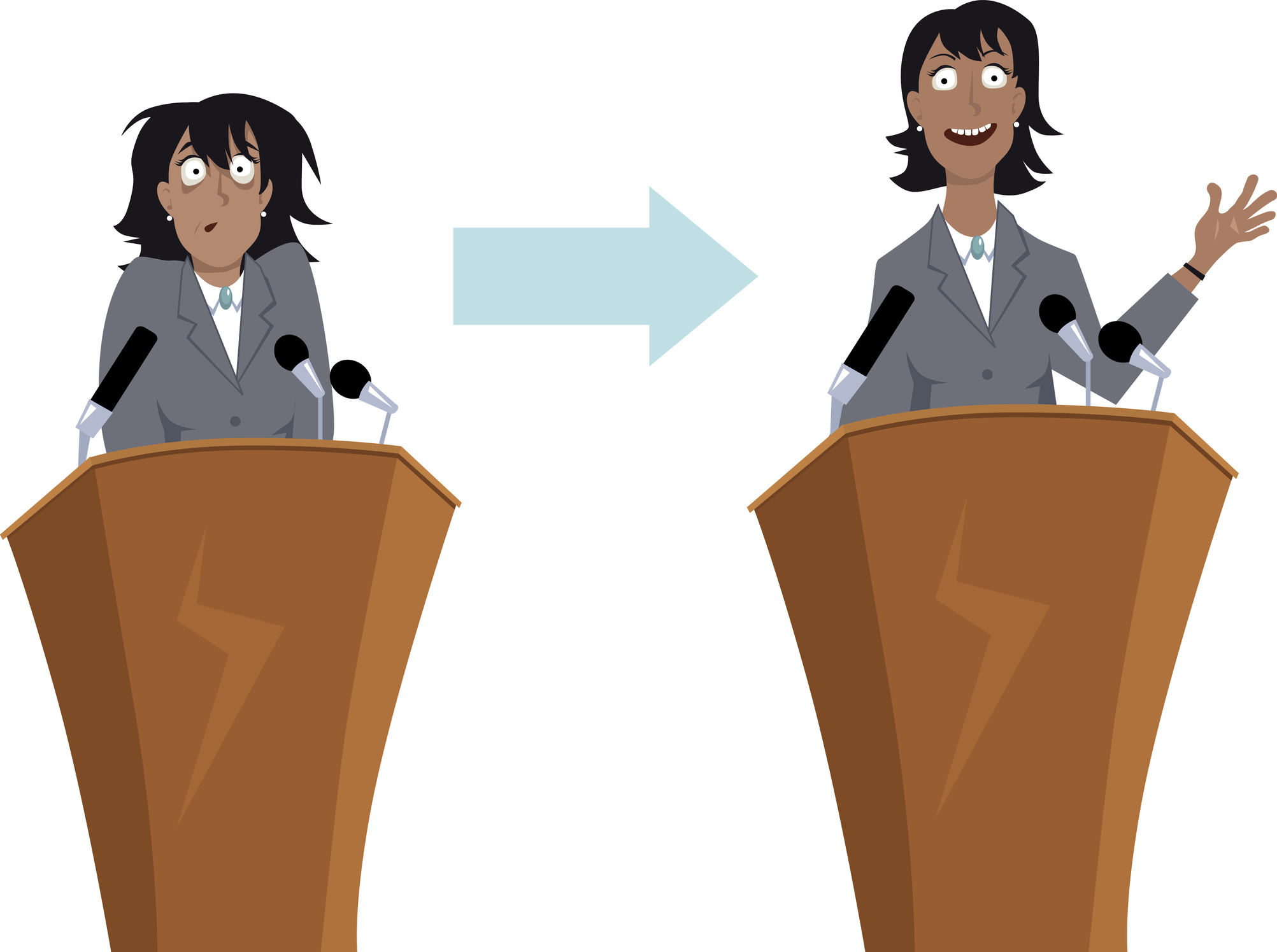Know Why Do Students Fear Public Speaking
Students fear public speaking due to the fear of making mistakes, lack of preparation, limited vocabulary, grammatical errors, lack of self-confidence, and the fear of embarrassment in front of their peers. This fear is often intensified by the pressure of being the center of attention, the fear of judgment, and the fear of losing control.
Additionally, students may also fear public speaking due to the lack of exposure and the fear of making a blunder in front of the audience. Public speaking is a common phobia, and the fear can be overwhelming for many students, causing them to avoid or dread these situations.
Understanding The Fear Of Public Speaking
Students fear public speaking for various reasons, including the fear of making mistakes, lack of preparation, limited vocabulary, grammatical errors, lack of self-confidence, and the fear of embarrassment in front of their peers. These factors contribute to anxiety and apprehension in students when it comes to public speaking.
Public speaking is a common fear among students, causing anxiety and stress when faced with the prospect of presenting in front of a group. To gain a deeper understanding of why students fear public speaking, let’s delve into the psychology behind this fear and explore two key factors: the fear of judgment and embarrassment, and the fear of making mistakes and being seen as flawed.
The Psychology Behind The Fear Of Public Speaking:
- The fear of public speaking stems from a combination of psychological and physiological factors.
- Our brain perceives public speaking as a potential threat, activating the fight-or-flight response, leading to feelings of anxiety.
- This fear can be traced back to our evolutionary past, where being the center of attention could have meant being singled out or judged by the group.
The Fear Of Judgment And Embarrassment:
- Students fear being judged negatively by their peers, teachers, or supervisors, which can erode their confidence.
- The fear of embarrassment stems from the worry of making mistakes, stumbling over words, or appearing foolish in front of others.
- The fear of ridicule or being laughed at can intensify the anxiety associated with public speaking.
The Fear Of Making Mistakes And Being Seen As Flawed:
- Students often place high expectations on themselves and fear making mistakes during their presentations.
- There is a fear of being seen as flawed or incapable if their performance falls short of these expectations.
- The pressure to deliver a flawless presentation can hinder students’ ability to express themselves freely and contribute to their fear of public speaking.
Understanding these psychological factors behind the fear of public speaking can help both students and educators develop strategies to overcome this anxiety. By addressing these fears head-on and providing support, students can gain confidence and improve their public speaking skills.
Factors Contributing To Students’ Fear Of Public Speaking
Students fear public speaking due to factors such as the fear of making mistakes, limited vocabulary, lack of preparation, grammatical errors, lack of self-confidence, and embarrassment in front of their peers. These factors contribute to their anxiety and fear when it comes to delivering presentations or speaking in public.
Public speaking can be a daunting task for many students, leading to feelings of fear and anxiety. There are several factors that contribute to this fear, including:
Lack Of Preparation And Limited Vocabulary:
- Insufficient preparation time can make students feel unprepared and unsure of their ability to deliver a successful speech.
- Limited vocabulary can restrict their ability to express themselves effectively, leading to a lack of confidence and increased anxiety.
Grammatical Errors And Lack Of Self-Confidence:
- Grammatical errors can make students self-conscious, worrying that their mistakes will be noticed and judged by the audience.
- Lack of self-confidence can stem from both a fear of failure and a fear of being judged or criticized by others.
Influence Of Friends And Fear Of Embarrassment:
- The influence of friends can play a significant role in amplifying students’ fear of public speaking. They may compare themselves to their peers, creating additional pressure to perform well.
- Fear of embarrassment is a common concern among students. They worry about making mistakes, stumbling over their words, or being laughed at by their peers.
By understanding these factors and their impact on students’ fear of public speaking, educators and instructors can take steps to address these concerns and provide support to help students overcome their anxieties.
Overcoming The Fear Of Public Speaking
Public speaking can be a daunting task for students due to various factors, such as the fear of making mistakes, lack of preparation, limited vocabulary, grammatical errors, lack of self-confidence, fear of judgment from friends, and the embarrassment of presenting in front of others.
However, with proper guidance and practice, students can overcome their fear and become more confident speakers.
Building Confidence Through Practice And Preparation:
- Engage in frequent practice sessions to become comfortable with speaking in front of others.
- Prepare and rehearse your speech or presentation in advance to boost your confidence.
- Practice deep breathing and relaxation techniques to reduce anxiety before speaking.
- Visualize positive outcomes and imagine yourself delivering your speech confidently.
Utilizing Public Speaking Techniques And Strategies:
- Use effective body language, such as maintaining eye contact, using hand gestures, and having good posture.
- Speak clearly and project your voice to ensure your message is heard.
- Use visual aids, such as slides or props, to enhance your presentation and engage the audience.
- Structure your speech logically with a clear introduction, body, and conclusion to keep your audience engaged.
Seeking Support And Guidance From Mentors Or Public Speaking Courses:
- Find a mentor or join a public speaking club to receive feedback and guidance on improving your speaking skills.
- Enroll in a public speaking course or workshop to learn techniques and strategies from experienced instructors.
- Practice in a supportive environment, such as a Toastmasters meeting, where you can receive constructive criticism and support from fellow speakers.
- Seek opportunities to speak in front of smaller groups or in low-pressure situations to gradually build your confidence.
By following these tips and techniques, you can overcome the fear of public speaking and become a confident and effective communicator. With practice, preparation, and support, you’ll be able to deliver speeches or presentations with ease and captivate your audience.
Don’t let the fear of public speaking hold you back – embrace the challenge and watch your confidence soar!

Credit: www.cnbc.com
Frequently Asked Questions For Why Do Students Fear Public Speaking?
What Are The Factors Affecting Fear Of Public Speaking?
The factors affecting fear of public speaking include fear of making mistakes, lack of preparation, limited vocabulary, grammatical errors, lack of self-confidence, and embarrassment in front of friends.
What Is The Fear Of Public Speaking In High School?
The fear of public speaking in high school is a common anxiety that students experience when presenting in front of their peers. Factors such as fear of making mistakes, lack of preparation, limited vocabulary, grammatical errors, lack of self-confidence, friends, and embarrassment contribute to this fear.
Helping students by praising their presentations can build their confidence and alleviate public speaking anxiety.
How Do You Help Students Who Struggle With Public Speaking?
We help students struggling with public speaking by praising their presentations and building their confidence in front of their peers.
How Many Students Struggle With Public Speaking?
Many students struggle with public speaking due to fear, lack of preparation, limited vocabulary, grammatical errors, and lack of self-confidence.
Conclusion
Speaking can be attributed to several factors, including the fear of making mistakes, lack of preparation, limited vocabulary, grammatical errors, lack of self-confidence, friends, and embarrassment. These anxieties can cause students to feel overwhelmed and fearful when it comes to speaking in front of others.
However, it is important to remember that public speaking anxiety is not uncommon and can be overcome with practice and support. One effective way to help students struggling with public speaking is through praise and encouragement. Building their confidence and showing them that they have the ability to present well in front of their peers can go a long way in alleviating their anxiety.
By creating a positive and supportive environment, students will feel more comfortable and less fearful when it comes to public speaking. It is also important to acknowledge that fear of public speaking is a common phobia worldwide. Many individuals, not just students, experience anxiety and nervousness when they are the center of attention.
By understanding this, we can work towards overcoming these fears and becoming more confident speakers. With practice, patience, and a supportive community, students can conquer their fear of public speaking and thrive in this important skill.

